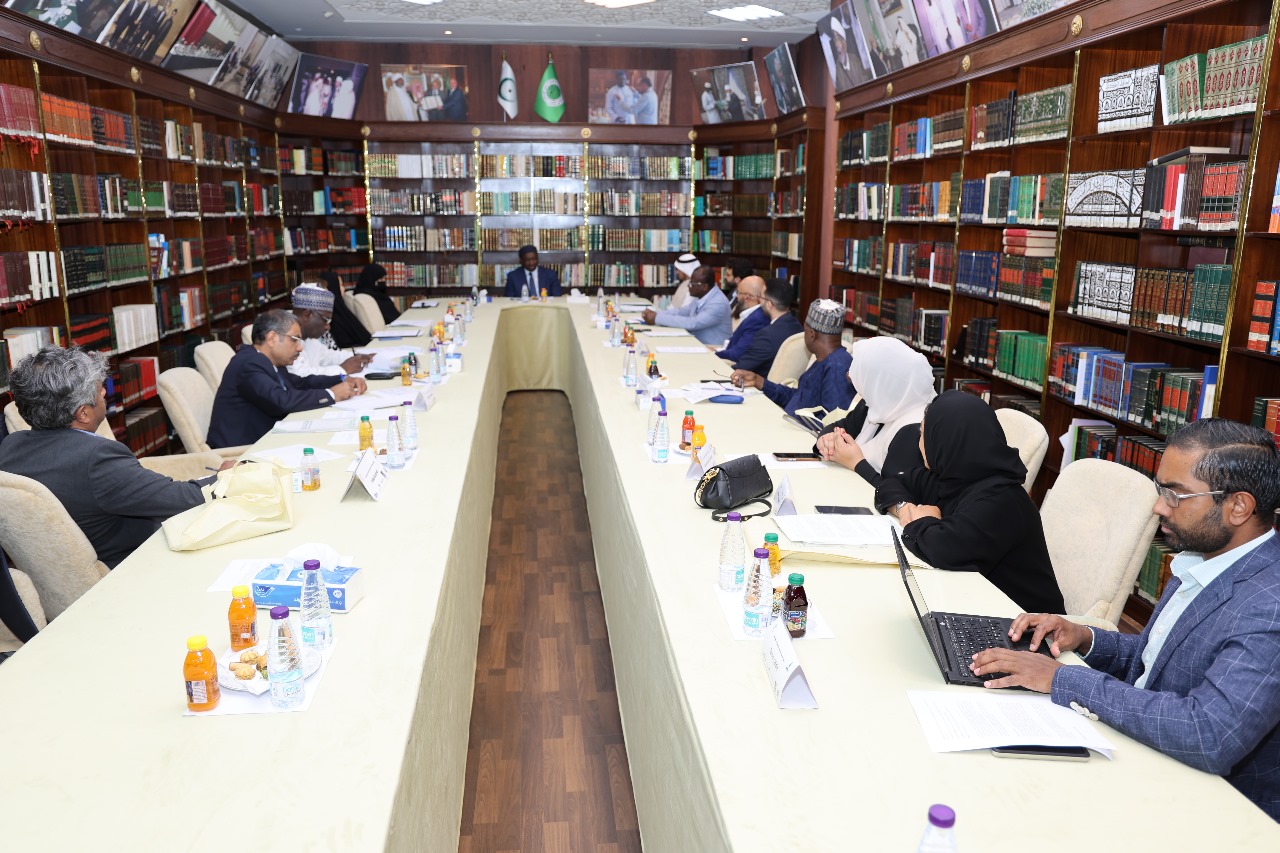
On Monday, 02 Jumada Al-Ula 1446, corresponding to 04 November 2024, H.E. Prof. Koutoub Moustapha Sano, Secretary General of the Academy, received the Participants in the Islamic Finance, Ethics, Entrepreneurship, and Investment for Global Development Program, organized by the Executive Board of Islamic Finance under the coordination of Dr. Jose Maria Recio, Director of the Saudi-Spanish Center for Islamic Economics and Finance.
The Secretary General of the Academy started the meeting by expressing his thanks to the organizers at King Abdulaziz University, the Saudi Economic Forum for Scientific Innovation, and the Saudi Spanish Center for Islamic Economics and Finance for the program, wishing them every success and stressing the Academy’s readiness to host such successful academic and intellectual programs. He then talked about the five main objectives of finance in Islam, which are some of the tools that need further study to develop Islamic finance and alleviate poverty: Zakat, Waqf, and Testaments, highlighting that developing these tools would methodologically and scientifically sustain the growth of wealth, achieve equitable its distribution, comprehensive welfare, and enhance transparency in transactions. His Excellency also suggested that considering the five objectives of finance within Sharia makes wealth a tool of construction and reconstruction, not a tool of destruction and devastation. He finally concluded his talk by emphasizing that the purpose of zakat is to increase and develop wealth, combat poverty and destitution in societies, and help the poor and needy, which is both a religious duty and an economic tool, as it eliminates monopoly and promotes productive investment.
Furthermore, His Excellency said that Awqaf play an important role in reducing unemployment and supporting public programs in education, health care, and defense by funding educational initiatives and building skills. Bequests are a tool for distributing wealth among family members, supporting social services and educational initiatives, and promoting institutional self-sufficiency.
At the end of the meeting, His Excellency paved the floor for participants to ask questions related to finance and Islamic economics in general. Mr. Mohammed Mondher Chouk, Director of Cabinet, Protocols, and Legal Affairs, Mrs. Sarah Amjad Bedewi, Director of Family, Women, Children, and the Elderly, and Dr. Haj Manta Drameh, Head of International Cooperation and External Relations, attended the meeting.
Read Also
Lastest








